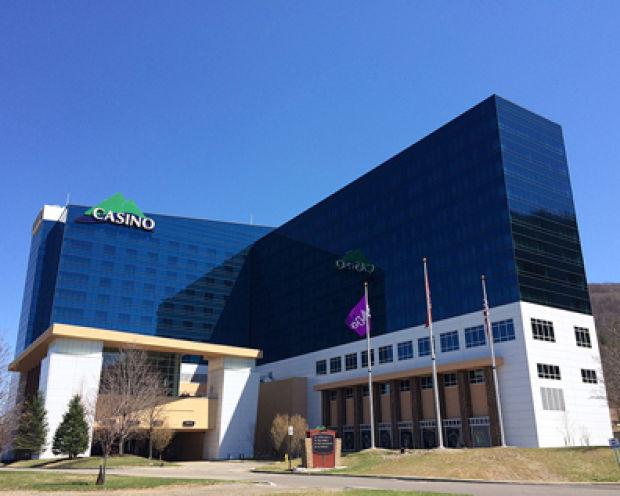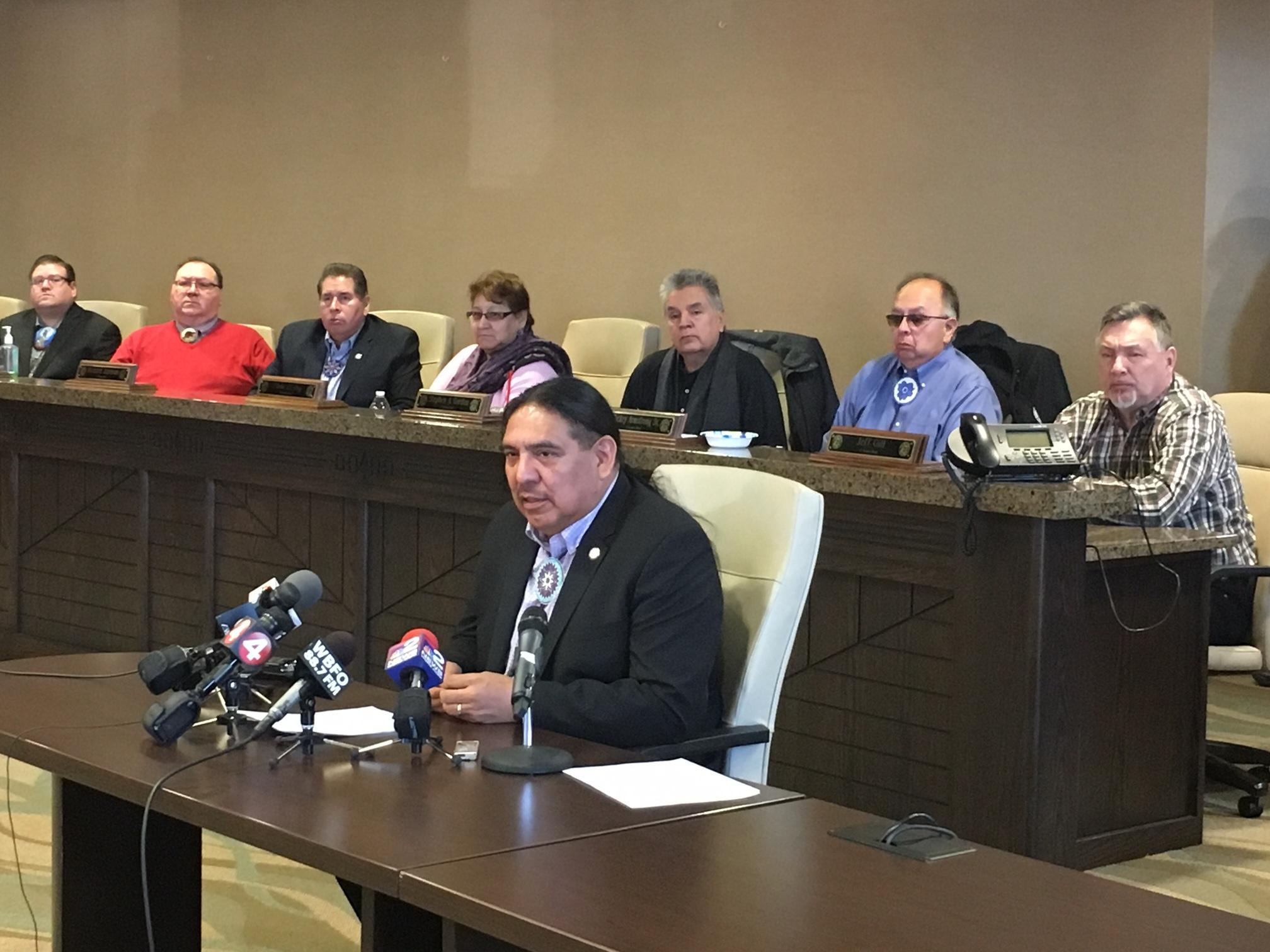Seneca Nation Casino Revenue
It looks like the Seneca Nation will have to fork over $256 million in gaming revenues to the state of New York. Between 2002 and 2016, the tribe shared $1.4 billion with the state. The arrangement stopped because the tribe believed it only had to make payments for 14 years. The Nation has been making such annual payments of $110-120 million, one-third of total casino slots revenue, to the state since 2002. The final payment is expected to reach $30 million. The compact signed between state and the Seneca nation provided a 21-year exclusivity agreement on gaming operations in a large western section of the state. Gaming revenues Casino revenues obtained from gaming Key Term Tribe/nation casino A Class III, full-scale casino operated by the Oneida, Saint Regis Mohawk, or Seneca tribe/nation in New York Key Term VLTs Video lottery terminals (i.e., gaming machines that resemble slot machines, but for which a central computer determines the results of each. A federal judge has ruled to back an arbitration panel's ruling that the Seneca Nation of Indians was wrong to halt annual casino revenue sharing payments to New York State. Back in January, a panel voted 2 to 1 that the tribe needed to continue making its annual payments on revenues from casinos in Buffalo, Niagara Falls and Salamanca, which.
A federal judge has ruled to back anarbitration panel's ruling that the Seneca Nation of Indians was wrong to halt annual casino revenue sharing payments to New York State.
Back in January, a panel voted 2 to 1 that the tribe needed to continue making its annual payments on revenues from casinos in Buffalo, Niagara Falls and Salamanca, which it agreed to in a 2002 agreement with the state .
ALBANY – An arbitration panel Wednesday ordered the Seneca Nation to pay the state $255 million in lapsed casino revenue-sharing proceeds – though it remained uncertain if the stalemate is actually.
The tribe stopped doing so in 2017, arguing the compact only called for 14 years of payments.
The federal judge Friday said interpreting the compact is not the issue, because the federal court must confirm an arbitration award if it was justly reached, which the court felt it was.

A spokesperson for Governor Andrew Cuomo says, as they've said all along, the Seneca nation needs to fulfill their obligations, make their neighbors and the state whole, and pay what they owe in exchange for their exclusive gaming rights.
Seneca Nation Elections
That number is estimated to be over $200 million in back payments alone.
Seneca Nation Casino Revenue Service
Buffalo Mayor Byron Brown said the ruling “confirms the consistent, long-standing belief we have held since the Seneca Nation stopped making payments: that the state and the city are owed this money and the Seneca Nation should pay it.”

Casino Revenue Seneca Nation
Buffalo City Council President Darius Pridgen said he is “excited” by the ruling.
“My hope going forward is that we can continue to have a positive working relationship with the Seneca Nation as a stakeholder and important part of our community.”
In response, Rickey Armstrong Sr., president of the Seneca Nation of Indians, said:
“The Nation has received the decision issued by the Court earlier today.
Our Compact agreement is clear in what it says and in what it does not say. Despite that lack of ambiguity, a majority of an arbitration panel interpreted that a new, unwritten obligation exists for the Seneca Nation. Today’, the Court has affirmed their interpretation.
We understood the reality that the arbitration and court proceedings may not ultimately uphold the language of the Compact as written. Yet, it is our obligation to defend our agreements, so they are not compromised for the benefit of others.
We will take the time to review today's decision and determine how the Nation will proceed.”
New York’s gambling industry is expanding rapidly. Not long ago, this state approved plans to allow additional casinos and sports betting operations. Unfortunately, New York’s casino dispute with the Seneca Nation is still ongoing.
Lawmakers in New York are in a bitter disagreement with the Seneca over casino tax payments. Today, we’re going to look at what this dispute is all about. We’ll also talk about what state officials are doing to end it.
New York Lawmakers Approve Gambling Expansion Plans
In the past, New York was known as one of the least gambling-friendly states in the US. Lawmakers here showed very little willingness to open any form of gambling aside from tribal casino gaming. Over the past two years, however, state officials have begun to change their stance.
Several bills were presented here to significantly expand the state’s gambling industry. Much of these expansion plans focused on sports betting. With PASPA now gone, every state can set its own laws on the sports gambling industry. Several New York politicians began actively campaigning for sports betting to be made legal.
The state approved a sports betting bill in June. On July 16th, the first legal sports wager in New York was made by Gary Pretlow, a state lawmaker instrumental in getting this industry legalized and regulated. Today, most of the state’s casinos operate land-based sportsbooks. It’s proving to be an extremely lucrative industry, bringing in major revenue earnings through taxes.
In April, New York lawmakers also approved plans to add several new casinos to the upstate area. Several popular casinos already operate in this area, including Resorts World Catskills, which was recently sold to investors in Malaysia. Now, both tribal and commercial casinos are operating here. Online casinos in NY are still unregulated.
Unfortunately, officials are engaged in a major dispute with one of the largest tribal casino operators in the state.
New York’s Casino Dispute with Seneca Nation, Explained

Seneca Nation News
For years, the Seneca Nation has operated a casino in Salamanca. Since first opening, this casino has been required to pay a 25% tax fee to the state on its revenue from the Class II bingo games it was able to offer. In March of 2017, the casino was given a Class III gambling license, granting it the power to offer slots and table games.
The tribe now believes that it’s no longer required to pay the 25% tax fee. Tribal leaders argue that this tax fee was only required from the Class II license. The Tribe believes that there was no provision stating that the revenue sharing would continue.
State officials obviously disagree. An official arbitration panel quickly ruled that the tribe owed $255 in back payments. The Seneca Nation is now working to fight this ruling in the courts. Unfortunately, this dispute is showing no signs of slowing down anytime soon.
Seneca Nation Casino Revenue Department
It’s taking a toll on the city of Salamanca, which relies on revenue from the casino to operate. Now, state officials are working on ways to help this city out.
New York Sends Salamanca $2.35 Million in Revenue Relief
Seneca Nation Casino Revenue Codes
New York’s casino dispute with the Seneca Tribe has been going on for years. During this time, the tribe has sent no money to Salamanca, where their casino is located. It’s a major disappointment for this city, which uses the money to fund social projects.
Government officials in New York have sent a check to Salamanca for $2.35 million. This city generally receives nearly $5 million in annual revenue from the Seneca casino. Kathy Sarver, City Comptroller of Salamanca, states that the rest of the money would also come from the state if the tribe does not agree to pay.
“If it is settled, then there won’t be any need to advance us any money because we’ll be getting the payments from the casino,” Sarver said. “It’s just an advance. If and when the casino compact issue is settled, we’ll have to pay the state back this money.”
It’s unclear exactly when this fight will end. Both the tribe and state officials believe that they are in the right.


Make sure to stay tuned for more updates to New York’s casino dispute with Seneca Nation over the next few months!